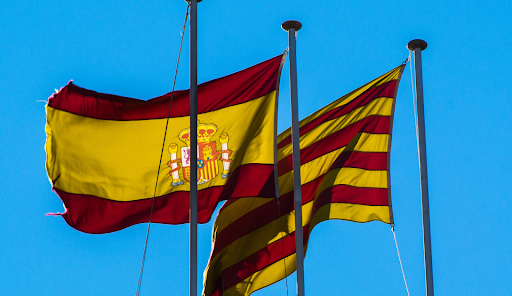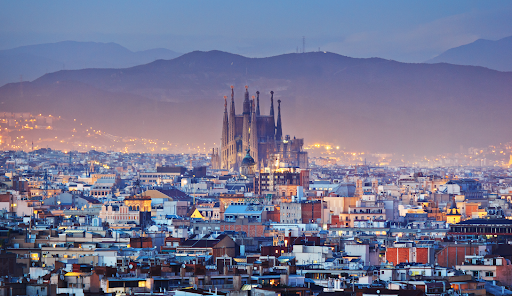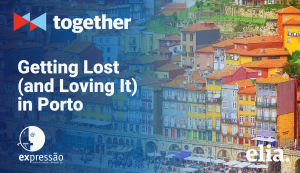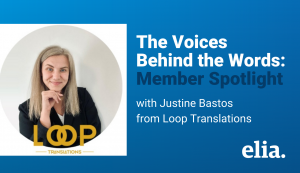Curated by our Together 2025 local partner, Kobalt, for your Barcelona adventure.
As you explore Barcelona during Together 2025, understanding its blend of Catalan and Spanish is a great opportunity to appreciate and connect with its people and culture. Whether you’re navigating the streets, enjoying local cuisine, or making new friends, a few Catalan phrases can go a long way. Read on to explore Barcelona’s linguistic charm and gear up for your trip.
In Barcelona, as in the rest of Catalonia, two languages coexist: Catalan and Spanish. They could be considered sister languages since both derive from Latin and belong to the Ibero-Romance branch, alongside Galician, Portuguese, and Occitan. Both are official languages in this region, so it’s common to see signage and notices in both Catalan and Spanish, whether on the streets, public transport, museums, restaurants, or in stores.

Although knowing Catalan isn’t essential to enjoying Barcelona and its people, learning and practising a few phrases for daily use will be greatly appreciated by locals, as it shows interest in their language. Everyone likes it when visitors to their city learn a few words of their language. However, Catalan has had periods of repression or diminished use, not so long ago. Also, don’t be surprised if conversations flow seamlessly between Catalan and Spanish. Many residents of the city have grown up with both languages and switching between them is as natural as breathing.
To help you navigate the city comfortably and communicate with people in Catalan, we’ve prepared a small glossary of everyday phrases in Catalan that will surely come in handy:
- When arriving somewhere or greeting someone, you can say “hola” (hello), “bon dia” (good morning) if it’s morning, or “bona tarda” (good afternoon) in the afternoon.
- Need to ask someone for something? Don’t forget to add “si us plau” or “sisplau” for short (please) at the beginning or end of the sentence.
- Once they’ve done what you’ve asked, you can thank them in Catalan by saying “gràcies” or “merci” (thank you), or even “moltes gràcies” (thank you very much).
- To say goodbye, there are several options: “adéu” (goodbye), “fins després” (see you later) if you’ll meet them later, or “fins demà” (see you tomorrow) if you won’t see them until the next day.
Catalan, like Spanish, French, and Italian, has evolved from Latin, so there are many words that resemble each other across these languages. Some examples include: “nit” (Catalan), “noche” (Spanish), “nuit” (French), and “notte” (Italian), which mean “night”; “educació” (Catalan), “educación” (Spanish), “éducation” (French), and “educazione” (Italian), meaning “education”; and “llibertat” (Catalan), “libertad” (Spanish), “liberté” (French), and “libertà” (Italian), meaning “freedom”. When you encounter a word that sounds familiar, it likely shares origins with one you already know or resembles a word in your native language.
Blending in with locals will be a breeze if you learn a bit of Catalan. They’ll soon want to share new words with you to help you practice, and you’ll quickly master basic – and perhaps not-so-basic – vocabulary to move around naturally in this vibrant city. We hope this survival guide will come in handy during your Barcelona visit. The ELIA Team and Committee are looking forward to welcoming you to Together 2025 very soon. Fins després!






